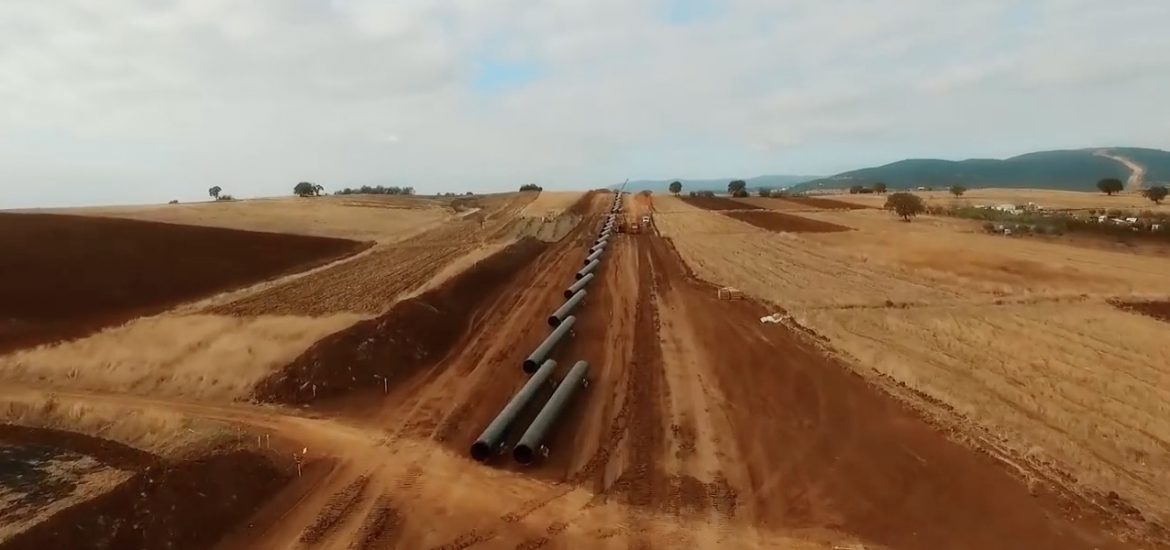
Italy’s populist Five Star Movement is struggling with campaign promises to axe the Trans-Adriatic Pipeline (TAP) now it is in power and facing pressure from Washington and Brussels to allow it to be completed.
The owner of a beach club in San Foca, southern Italy, Alfredo Fasiello voted Five Star this year because he thought the anti-establishment party would join his battle against the 880km, US$5.2-billion pipeline to bring gas from Azerbaijan to Italy.
Five Star has joined the government and its youthful leader Luigi Di Maio is the minister for economic development but the party’s position on the TAP is angering many southern voters, who form the backbone of the party’s support.
“We hoped they would have a trace of the honesty and transparency that they talk so much about. They were here 1,000 times,” said Fasiello, whose beach club will sit above the pipeline.
“If Five Star betrays us, they will never get another vote here,” the 62-year-old added. “They’ll be ashamed to show up on the beaches. It’s not just this area. If they betray us, everyone will know not to trust them.”
Italian Prime Minister Giuseppe Conte recently met Marco Poti, the mayor of Melendugno, who is threatening to delay work on the TAP, but Conte was non-committal after the meeting.
“I assured them the government will conduct an in-depth assessment of the whole dossier,” Conte said after the meeting, adding that legal commitments had been made by the previous administration.
Five Star opposed the conventional parties and big business interests, running a nationalist-themed campaign filled with conspiratorial promises against global forces and suspicion of the traditional elite, including in energy policy.
The residents’ opposition to the project has centred on alleged environment risks and fear the pipeline could deter tourists.
“Would you ever bring your child swimming here? With an atomic bomb underneath? It’s a tumour,” said Fasiello. “It’s three metres in diameter and you can drive a car through it.”
The pipeline has confronted the inexperienced party with the choice of governing in an interconnected world where actions have consequences.
Italy imports 90 per cent of its energy and Washington and Brussels want the pipeline to weaken Russia’s oil and gas grip on the EU.
Donald Trump backs the pipeline as a competitor to Nord Stream 2 linking Russia to Germany under the Baltic.
But Five Star and its coalition partner the League are opponents of sanctions against Russia and want closer ties with Russian President Vladimir Putin, while failing to agree with the strategic goal of reducing the Kremlin’s energy influence.
But US and EU pressure, the prospect of billions of euros in penalties and the loss of credibility for future investment is making Five Star backtrack.
League leader Matteo Salvini recently said the pipeline needed to be finished to lower gas prices and help the impoverished south.
But the pipeline, due for completion in 2020, is unpopular in Puglia, a region in Italy’s heel that was key to Five Star’s electoral success.
Barbara Lezzi, a Five Star leader from nearby Lecce, who is now the government’s minister for the south and built her campaign around opposing the pipeline. She also held flash-mob protests on the beach.
Beppe Grillo, Five Star co-founder, marched against the pipeline in 2014, and, in April last year, one of the party’s central figures, Alessandro Di Battista, visited the beach and promised that, once in power, Five Star would stop the pipeline “in two weeks”.
The Trans-Adriatic Pipeline has been making rapid progress through the Balkans. Picture credit: YouTube





